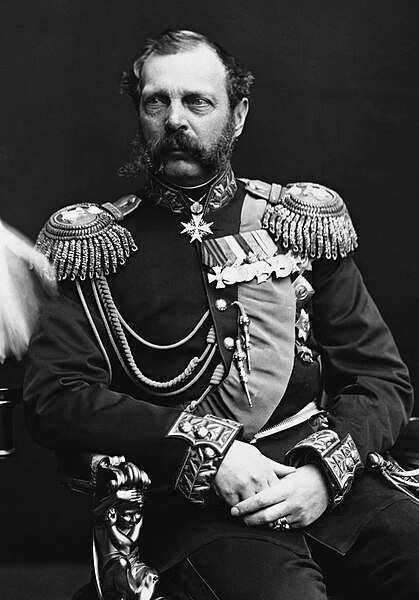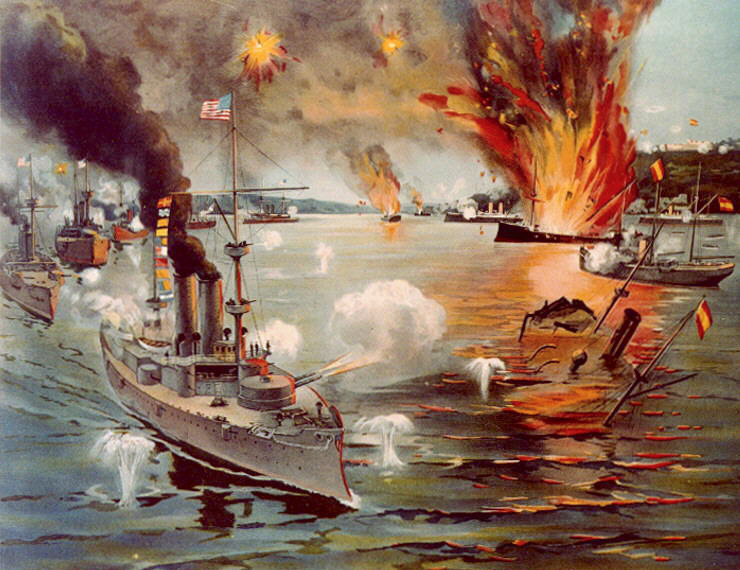This article explores significant historical events that occurred on March 3, highlighting their impact across various domains.
From the early integration of Wales into England in 1284 to Steve Fossett’s record-breaking solo flight around the world in 2005, each event represents a pivotal moment in the narrative of human progress.
We examine milestones such as the adoption of “The Star-Spangled Banner” as the U.S. national anthem in 1931, the discovery of oil in Saudi Arabia in 1938, and the technological leap marked by the launch of Apollo 9 in 1969.
March 3rd Events in History
1284 – The Statute of Rhuddlan was enacted, incorporating the Principality of Wales into England
This statute, enacted by King Edward I of England, followed the conquest of Wales by the English. It introduced the English legal system to Wales and divided it into shires, much like England, effectively annexing Wales to the crown of England.
Also Read: March 2 – On this Day in History
This statute represented a significant step in the process of integrating Wales with England, laying the groundwork for the eventual formal union between the two countries.
1575 – Indian Mughal Emperor Akbar defeats Bengali army at the Battle of Tukaroi
This battle was fought between the Mughal Empire, led by Emperor Akbar, and the Sultanate of Bengal near the town of Tukaroi, in what is now Odisha, India. The battle resulted in a decisive victory for the Mughals, significantly weakening the Bengal Sultanate.
This victory was an important part of Akbar’s campaign to expand his empire into eastern India, and it paved the way for the eventual annexation of Bengal into the Mughal Empire.
1776 – American Revolutionary War: The first amphibious landing of the United States Marine Corps begins the Battle of Nassau
This event marks the first amphibious landing by the Marine Corps during the Battle of Nassau in the Bahamas as part of the American Revolutionary War. The Marines, along with Continental sailors, aimed to seize British-held Nassau for its valuable stores of gunpowder.
Also Read: March 4th Events in History
The raid was successful, and the Americans managed to secure a significant amount of munitions for their cause, marking an early victory and showcasing the strategic importance of the Marine Corps.

1799 – The Russo-Ottoman War (1787–1792) ends with the signing of the Treaty of Jassy, recognizing the Russian Empire’s annexation of Ochakov and the Crimea
The Treaty of Jassy, signed between the Ottoman Empire and the Russian Empire, ended the Russo-Turkish War of 1787–1792. The treaty acknowledged Russian victories by allowing Russia to annex Ochakov and the entire region between the rivers Dniester and Bug, extending Russia’s frontier southward to the Black Sea.
This treaty reaffirmed Russian dominance in the Black Sea region, significantly influencing the balance of power in Eastern Europe.
1820 – The U.S. Congress passes the Missouri Compromise
The Missouri Compromise was a significant legislative act aimed at addressing the contentious issue of slavery’s expansion into the new territories of the United States.
The compromise admitted Missouri as a slave state and Maine as a free state, thus maintaining the balance of power between free and slave states in the Senate.
Additionally, it prohibited slavery in the Louisiana Territory north of the 36°30′ parallel (except for Missouri). This compromise was a crucial, though temporary, solution to the growing sectional divide over slavery, which would eventually lead to the American Civil War.
1845 – Florida is admitted as the 27th U.S. state
On March 3, 1845, Florida was admitted to the United States as the 27th state. Before its admission, Florida had been a territory of the U.S. since Spain ceded it to the United States in 1819, as part of the Adams-Onís Treaty.
The admission of Florida as a state was part of the broader antebellum period of U.S. history, characterized by the expansion of the country’s territory and the intensifying debate over slavery. Florida’s entry into the Union as a slave state was a significant event in the prelude to the American Civil War.
1857 – France and the United Kingdom declare war on China, starting the Second Opium War
The Second Opium War, also known as the Arrow War, was declared by Britain and France against China. The conflict arose from issues including the trade in opium, diplomatic recognition, and the legal status of foreign nationals.
In October 1856, Chinese officials boarded the Arrow, a ship registered in Hong Kong, and arrested 12 Chinese crew members, leading to British military retaliation.
The war resulted in significant defeats for the Qing Dynasty and led to the Treaty of Tientsin, which opened more Chinese ports to foreign trade and legalized the opium trade.

1861 – Alexander II of Russia signs the Emancipation Reform into law, abolishing serfdom in Russia
The Emancipation Reform of 1861 in Russia was one of the most significant events in the country’s social history before the Russian Revolution of 1917. Signed into law by Emperor Alexander II, the reform effectively abolished serfdom throughout the Russian Empire.
Serfs, who were previously bound to their masters’ land and sold with it, were granted personal freedom and the right to own property and marry as they chose.
The reform aimed to facilitate a more modern economic system in Russia but also led to numerous social and economic challenges, as many freed serfs were left in poverty.
1875 – The first ever organized indoor game of ice hockey is played in Montreal, Canada
On March 3, 1875, the first recorded indoor game of ice hockey was played at the Victoria Skating Rink in Montreal, Quebec, Canada. Organized by James Creighton, a Canadian who is often credited with developing the modern form of the game, the match featured two teams of nine players each.
This event is significant because it marked the birth of ice hockey as a structured sport, leading to the establishment of standardized rules and the sport’s spread throughout Canada and eventually the world.
1878 – Bulgaria regains its independence from the Ottoman Empire according to the Treaty of San Stefano; celebrated in Bulgaria as Liberation Day
The Treaty of San Stefano was signed on March 3, 1878, between Russia and the Ottoman Empire at the end of the Russo-Turkish War (1877–1878). The treaty significantly altered the map of the Balkans, creating a large autonomous Bulgarian principality under Ottoman suzerainty.
Although the Treaty of San Stefano marked the re-establishment of Bulgarian statehood after centuries of Ottoman rule, its provisions were revised later that year by the Congress of Berlin, reducing Bulgaria’s territory and autonomy to placate Great Britain and Austria-Hungary, who feared a large Russian-influenced state in the Balkans.
1885 – The American Telephone & Telegraph Company is incorporated in New York
The incorporation of AT&T on March 3, 1885, marked a pivotal moment in the history of telecommunications. Founded as a subsidiary of Alexander Graham Bell’s original Bell Telephone Company, AT&T was established to create a nationwide long-distance telephone network with a monopoly on long-distance service.
Its formation was instrumental in the development and expansion of the telephone system in the United States, facilitating communication across vast distances and contributing to the country’s economic and social development.
1913 – The United States Department of Commerce and Labor is divided into two separate entities: the Department of Commerce and the Department of Labor
On March 3, 1913, the U.S. Department of Commerce and Labor, originally established in 1903, was split into two distinct departments: the Department of Commerce and the Department of Labor.
This division was made to address the growing complexities of the American economy and labor force, allowing for more specialized focus on commerce and industry versus labor issues and worker rights.
The Department of Labor was tasked with promoting the welfare of job seekers, wage earners, and retirees, while the Department of Commerce focused on promoting economic growth and technological competitiveness.
1923 – TIME magazine is published for the first time
TIME magazine made its debut on March 3, 1923, founded by Briton Hadden and Henry Luce, who aimed to create a concise and informative news magazine that could be read in an hour.
The publication quickly established itself as one of the most influential weekly news magazines in the United States and the world, known for its in-depth journalism, cover stories, and the annual “Person of the Year” feature.
TIME’s innovative approach to news summary and analysis has made it a significant source of information on current events, culture, and influential figures.
1931 – The United States adopts The Star-Spangled Banner as its national anthem
Congress passed a resolution on March 3, 1931, officially adopting “The Star-Spangled Banner” as the national anthem of the United States. The lyrics were written by Francis Scott Key in 1814 during the War of 1812, inspired by the sight of the American flag flying over Fort McHenry after a night of bombardment by the British.
The music is attributed to John Stafford Smith for a song originally titled “The Anacreontic Song.” The anthem’s adoption came after more than a century of unofficial recognition and its widespread use by the military and public events.
1938 – Oil is discovered in Saudi Arabia
The discovery of oil on March 3, 1938, at Dammam Well No. 7, marked a turning point in the history and economy of Saudi Arabia and the global energy market. This discovery by an American oil company, Standard Oil of California (later Chevron), led to the development of the largest source of crude oil in the world.
The wealth generated from oil fundamentally transformed Saudi Arabia from a desert kingdom into one of the wealthiest nations globally, and it has played a pivotal role in the country’s international relations and the global economy.

1945 – World War II: American and Filipino forces recapture Manila in the Philippines
This event refers to the Battle of Manila, which took place from February 3 to March 3, 1945, during World War II. It was a major battle of the Philippine campaign, involving fierce urban fighting between American and Filipino forces against Japanese defenders.
The battle resulted in a significant victory for the Allies but at a high cost, with large parts of Manila destroyed and thousands of civilian casualties. The recapture of Manila was a pivotal moment in the liberation of the Philippines from Japanese occupation.
1958 – Nuri al-Said becomes Prime Minister of Iraq for the eighth time
Nuri al-Said was a prominent Iraqi politician who served multiple terms as Prime Minister of Iraq. His return to power on March 3, 1958, marked his eighth term in the position. Al-Said was a strong advocate for Pan-Arabism and sought to integrate Iraq into the Arab fold.
However, his tenure was controversial due to his authoritarian methods and close ties with the Western powers, particularly the United Kingdom. His last term in office ended with the Iraqi revolution in July 1958, which resulted in his assassination and the establishment of a republic in Iraq.
1969 – Apollo 9 is launched by NASA to test the lunar module
Apollo 9 was a crucial mission in NASA’s Apollo program, launched on March 3, 1969. It was the first flight of the complete Apollo spacecraft, including the command and service module (CSM) and the lunar module (LM).
The mission’s primary objective was to test the lunar module in Earth orbit, including its systems, docking procedures, and crew transfer operations between the LM and the CSM. The successful completion of Apollo 9’s objectives paved the way for the Apollo 11 moon landing later that year.
1985 – A U.S. report accuses the Soviet Union of violating the 1972 Biological Weapons Convention
In 1985, the United States government officially accused the Soviet Union of violating the Biological Weapons Convention (BWC) of 1972, which prohibited the development, production, and stockpiling of biological and toxin weapons.
The U.S. alleged that the Soviet Union had maintained an offensive biological weapons program in secret, despite being a signatory to the BWC. This accusation was part of the broader context of the Cold War tensions between the United States and the Soviet Union, and it highlighted the challenges of verifying compliance with arms control agreements.
2005 – Steve Fossett becomes the first person to fly an airplane non-stop around the world solo without refueling
On March 3, 2005, American adventurer Steve Fossett achieved a historic aviation milestone by becoming the first person to fly solo non-stop around the world without refueling.
Piloting the Virgin Atlantic GlobalFlyer, a custom-built aircraft designed specifically for the attempt, Fossett completed the journey in 67 hours and 1 minute. The flight took off from Salina, Kansas, and covered a distance of 36,787.559 kilometers (22,858 nautical miles).
This remarkable feat demonstrated the potential for ultra-long-distance flight and was a testament to human ingenuity and the spirit of adventure.
